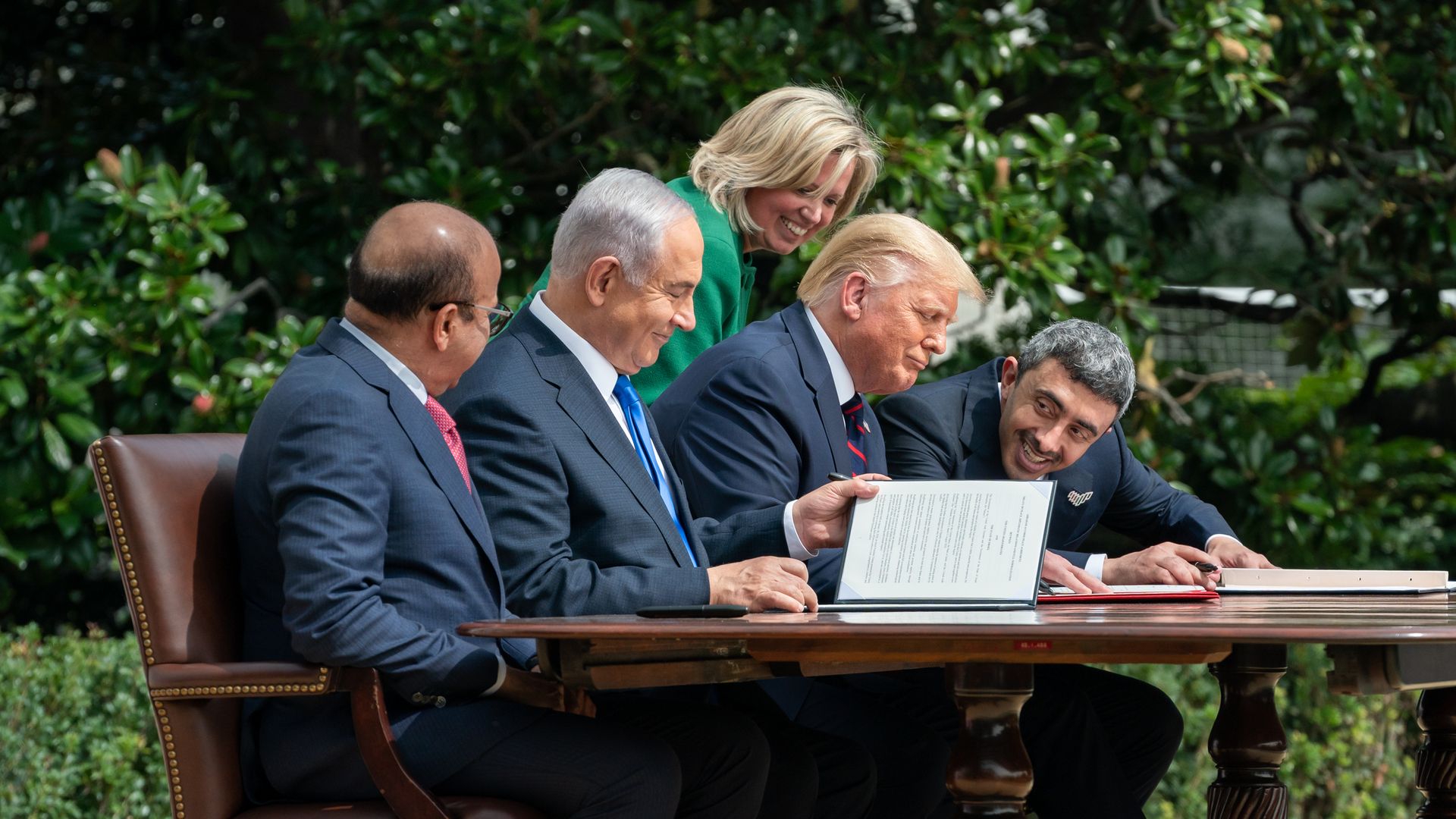Sep 15, 2020 - World
UAE-Israel treaty states commitment to meeting the needs of Israelis and Palestinians
Add Axios as your preferred source to
see more of our stories on Google.

U.S. President Donald Trump (2nd R), Israeli Prime Minister Benjamin Netanyahu (2nd L), UAE Foreign Minister Abdullah bin Zayed Al Nahyan (R) and Bahrain Foreign Minister Abdullatif bin Rashid Al Zayani (L) attend a signing ceremony for the agreements on "normalization of relations" reached between Israel, the United Arab Emirates (UAE) and Bahrain at the White House in Washington, United States on September 15, 2020. Photo:
Anadolu Agency / Getty Images
